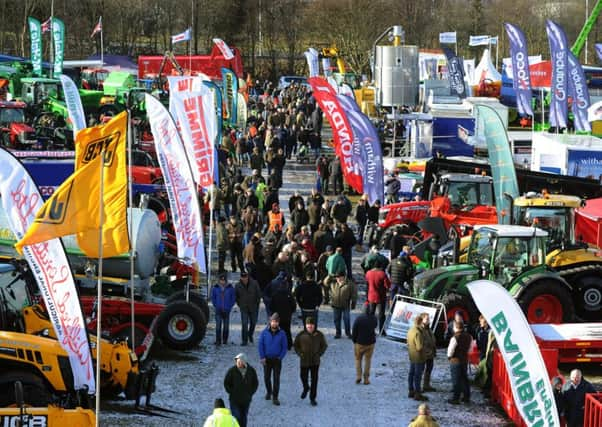Farms '˜must embrace emerging technology to meet challenges'


With farming subsidies expected to be increasingly linked with delivering gains for nature and a new 25-year Environment Plan laden with aims to cut industrial emissions, manage exposure to chemicals and ensure food is produced sustainably and profitably, agriculture must capitalise on existing and emerging technology if it is to meet the challenge, according to farming machinery specialist Andrew Mansfield.
Mr Mansfield, who runs the East Yorkshire-based agricultural machinery firm Manterra, is involved in technological research in conjunction with Stockbridge Technology Centre at Cawood and CHAP, the Crop Health and Protection centre near York.
Advertisement
Hide AdAdvertisement
Hide AdHe said that if the ‘green’ agenda set out by Environment Secretary Michael Gove last month was to be addressed by the farming industry then precision farming technologies, a management concept that cuts waste and controls inputs into farmland, would be “absolutely key”.
Work to take these advances onto farms is already under way in Yorkshire.
Among the targets set out in Mr Gove’s Environment Plan is to achieve cleaner water, create or restore 500,000 hectares of wildlife-rich habitat, double resource productivity and improve the environmental value of natural scenery.
“Soil quality is basically core to all these aims and CHAP is leading on projects that translate into benefits for agriculture in the coming years,” Mr Mansfield said.
Advertisement
Hide AdAdvertisement
Hide AdSpeaking to The Yorkshire Post as a spokesman for CHAP, he said they were involved in a number of projects focussed on the opportunities of precision farming technology which aimed to bring about a substantial reduction in the quantity of pesticides, water and energy that go into the food production process.
“All this can give better quality outputs in terms of the produce and if we can do less cultivation, use less water and retain soil quality, it’s a win-win-win all the way,” he said.
“By creating initiatives like CHAP, the Government has recognised we need to transfer research from universities and institutes into the field where farmers can see them working.
“Technologies are being developed now that can make that jump into the commercial field.”
Advertisement
Hide AdAdvertisement
Hide AdAccording to James Copeland, environment advisor at the National Farmers’ Union, technological leaps can play a big role but some farmers still face basic barriers to adopt modern practices.
Mr Copeland said: “We need to make sure we have access to research and development to make sure that we can have productive and profitable farming. On that basis, we can address the environmental challenge.
“But at the moment, the availability of even simple, basic technology such as access to the internet is holding some farmers back.”
New innovations in farming technology will be showcased today at York Auction Centre which hosts its fifth annual Yorkshire Agricultural Machinery Show.
More than 200 trade stands will feature as part of the North’s largest farm machinery event.